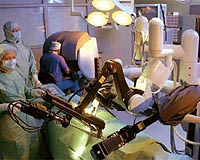 |
Bangkok (AFP) Jan 25, 2011 Southeast Asia's 600 million people are facing a raft of new health challenges as the disaster-prone region undergoes some of the world's fastest social change, medical papers published Tuesday said. "A health crisis is transpiring right before our eyes," warned a paper in the series, published by The Lancet journal, which said chronic diseases such as cancer now account for 60 percent of deaths in the region. It was also dubbed a "hotspot" for emerging and difficult-to-control infectious diseases, with outbreaks in avian flu fuelling fears about the possibility of new pandemics spreading from Southeast Asia. "The pace of demographic change in the region is one of the fastest worldwide, whether it is due to population ageing, fertility decline, or rural to urban migration," said the papers. "As elsewhere, the disease burden continues to shift from infectious to chronic diseases, yet increased urban population density has created concerns about emerging infectious diseases." The reports also point to Southeast Asia being one of the world's most disaster-prone regions, with the environment responsible for up to a quarter of all deaths in an area regularly hit by monsoons and typhoons. Weather phenomena such as El Nino also "intensify the annual variation of the hot and wet climate, leading to droughts, floods and the occurrence of infectious diseases such as malaria and cholera," said one of the papers. "Climate change could exacerbate the spread of emerging infectious diseases in the region, especially vector-borne diseases linked to rises in temperature and rainfall," such as dengue, it added. Deforestation and other human encroachment on wildlife habitats were said to heighten the potential for germs to cross species barriers, as they increase interactions between wildlife, humans and livestock. Controlling these diseases is difficult given the variety of economies and health systems across the nations analysed: Laos, Indonesia, the Philippines, Brunei, Malaysia, Myanmar, Singapore, Cambodia, Thailand and Vietnam. City state Singapore, for example, has a gross domestic product per head of $37,500, while in largely rural Laos the equivalent figure is $890. Political tensions within and between countries "have the potential to further hinder control" of emerging infections, said the papers, which called for improved surveillance of these health threats across the region. They also called for urgent action to tackle Southeast Asia's "epidemic of non-communicable disease", including heart disease, stemming from environmental factors promoting tobacco use, unhealthy diet and inadequate physical activity. "Unless nations recognise the problem and take appropriate action, premature death and disability will continue, hindering development where development is needed most."
Share This Article With Planet Earth
Related Links Hospital and Medical News at InternDaily.com
 Robotic Surgery Of 'Tremendous Benefit' To Patients
Robotic Surgery Of 'Tremendous Benefit' To PatientsMontreal, Canada (SPX) Jan 17, 2011 Robot-assisted surgery dramatically improves outcomes in patients with uterine, endometrial, and cervical cancer, said researchers at the Jewish General Hospital's Lady Davis Institute for Medical Research in Montreal. Moreover, because of fewer post-operative complications and shorter hospital stays, robotic procedures also cost less. These results were published in late 2010 in a series ... read more |
|
| The content herein, unless otherwise known to be public domain, are Copyright 1995-2010 - SpaceDaily. AFP and UPI Wire Stories are copyright Agence France-Presse and United Press International. ESA Portal Reports are copyright European Space Agency. All NASA sourced material is public domain. Additional copyrights may apply in whole or part to other bona fide parties. Advertising does not imply endorsement,agreement or approval of any opinions, statements or information provided by SpaceDaily on any Web page published or hosted by SpaceDaily. Privacy Statement |